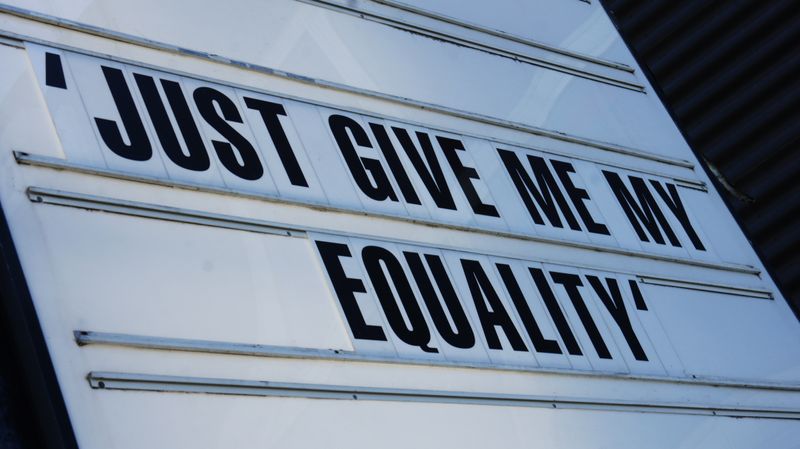Robert Bowers: Antisemitic Gunman Sentenced to Death for Tree of Life Synagogue Shooting
Background
On October 27, 2018, a tragic incident occurred at the Tree of Life Synagogue in Pittsburgh, Pennsylvania. Robert Bowers, then 46 years old, walked into the synagogue and opened fire, killing 11 innocent worshippers. Bowers was subsequently shot and wounded by the police before surrendering. He was charged with 63 federal counts, including hate crimes resulting in death and obstruction of free exercise of religion resulting in death. After a trial that concluded on June 16, 2023, Bowers was convicted on all counts.
Hate Speech and Antisemitic Beliefs
In the months leading up to the shooting, investigators found that Bowers had been spreading hateful and antisemitic rhetoric online. He frequently used social media platforms, specifically Gab, a right-wing alternative to Twitter, to post racist memes, derogatory slurs targeting Jewish people, and conspiracy theories. Bowers described Jewish people as the “enemy of white people” and expressed beliefs that they were involved in smuggling Muslims into the United States. His online activities exhibited a deep-seated hatred towards Jewish people and revealed a disturbing level of radicalization.
The Tree of Life Synagogue Shooting
Before carrying out the shooting, Bowers posted a message on a web forum stating, “I can’t stand by and watch my people get slaughtered. Screw your optics, I’m going in.” His motivations for the attack were clear: he wanted to “kill Jews.” After his arrest, it was discovered that Bowers owned 21 registered weapons, emphasizing his intention to cause mass harm. The police claimed that Bowers stated, “These people are committing genocide on my people. I just want to kill Jews,” after being wounded in the synagogue. Despite attempts by his defense team to exclude this statement from consideration, it was deemed admissible by the court.
The Trial and Sentencing
During the trial, prosecutors argued that hate was the driving force behind Bowers’ attack on the synagogue. They presented evidence of his intentional malice and deep-seated animosity towards Jewish people. The defense, on the other hand, attempted to use Bowers’ alleged mental illnesses, including schizophrenia and epilepsy, as mitigating factors in his sentencing.
The defense offered a plea deal to spare Bowers from the death penalty, but prosecutors rejected it. In July, a jury determined that Bowers met the criteria for the death penalty: he was over 18 at the time of the crime, had an intent to kill, and had at least one aggravating factor. After 10 hours of deliberation over two days, the jury unanimously decided that Bowers should be executed.
The Significance of the Sentencing
Robert Bowers’ sentencing marks a historic moment in the United States. He will be the first person to face federal execution during President Joe Biden’s administration. This decision highlights the severity of the crime and the recognition that acts of domestic terrorism, rooted in hate and extremism, must be condemned and met with the appropriate legal consequences.
Philosophical Discussion and Editorial
Hatred, Extremism, and Radicalization
The case of Robert Bowers raises important questions about the rise of hatred, extremism, and radicalization in society. His online activities, filled with anti-Semitic rhetoric and conspiracy theories, demonstrate the power of social media platforms in amplifying and spreading hate speech. Bowers’ beliefs and actions reflect a dangerous ideology that views certain groups as enemies and justifies violence against them.
We must confront the underlying factors that contribute to the radicalization of individuals like Bowers. This includes addressing the root causes of hatred, such as social alienation, economic disparities, and ideological echo chambers that reinforce extreme beliefs. It is essential to promote education, dialogue, and empathy as tools to combat extremism and foster a more inclusive society.
Mental Health and Violent Crimes
The defense’s argument regarding Bowers’ mental health raises questions about the intersection of mental illness and violent crimes. While it is crucial to recognize and address mental health issues, it is equally important to consider the broader context and motivations behind such acts of violence. Mental illness alone cannot be used as a justification or excuse for committing heinous crimes.
In cases like these, it is necessary for the justice system to carefully evaluate the role of mental illness and weigh it against the severity of the crime committed. The focus should be on ensuring proper treatment and support for individuals with mental health conditions while holding them accountable for their actions.
Advice for Moving Forward
Social Media Responsibility
The case of Robert Bowers highlights the need for stricter regulation and enforcement of social media platforms. Online platforms must take responsibility for identifying and removing hate speech, extremist content, and dangerous ideologies. Transparency and accountability should be prioritized to prevent the spread of radicalization and the incitement of violence.
Community Engagement
Building strong, inclusive communities is crucial in countering hate and extremism. It is essential for individuals, organizations, and institutions to actively engage in dialogue, promote understanding, and celebrate diversity. By fostering empathy and rejecting divisive narratives, we can create a society that values tolerance and unity.
Mental Health Support and Education
Investing in mental health support services and education is vital to prevent acts of violence. Early intervention, access to quality mental health care, and increased awareness can help identify individuals who may be at risk of radicalization and provide the necessary support to address their underlying issues. Additionally, destigmatizing mental health and promoting open conversations can encourage individuals to seek help before their struggles escalate into violent behavior.
Conclusion
The sentencing of Robert Bowers for the Tree of Life Synagogue shooting has brought attention to the devastating impact of hatred, extremism, and radicalization. The case serves as a reminder of the urgent need to address these issues in our society. By combating hate speech, promoting community engagement, and prioritizing mental health support and education, we can work towards creating a safer and more inclusive future.

<< photo by Erik Mclean >>
The image is for illustrative purposes only and does not depict the actual situation.
You might want to read !
- Niger Military Seizes Control as President’s Guards Switch Allegiance
- Spain’s Election Deadlock: Navigating an Uncertain Political Landscape
- The Trial of Islamist Preacher Anjem Choudary: Assessing the Extent of Terrorist Activities
- Tragedy in Baltimore: Exploring the Aftermath of a Mass Shooting
- Opinion: Unveiling the Impact of Islamic Preacher Anjem Choudary’s Charges in Today’s Society
- UK Warned Tony Blair of “Appalling” Attack Following 9/11
- Melanie Sykes Opens Up About Her Possible Tourette’s Syndrome Diagnosis
- A Journey of Resilience: Ray Davies’s Lifelong Condition and Mental Health Battles
- Breaking the Silence: Lucy Spraggan Opens Up About Her Experience of Sexual Assault
- “The Legacy of the Unabomber: A Look Back at America’s Most Infamous Domestic Terrorist”
- Unabomber Ted Kaczynski, the notorious serial bomber and domestic terrorist, found dead in prison cell




